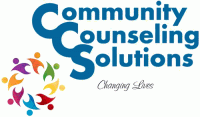Peers Reach Out
Peers reach out to seniors who feel lonely
Imagine a woman living alone. Her family is far away. She is unable to drive, and there is no bus line in her rural area. She has a neighbor who takes her to the grocery store, but they are not close.
This scenario of isolation and loneliness plays out over and over in Oregon’s rural areas, contributing to depression and declining health in many older people.
Imagine this same woman receiving a friendly phone call once a week from someone near her own age, who just wants to listen and chat. With this outlet to express her feelings and share her frustrations, she feels less isolated.
Oregon Senior Peer Outreach offers free help like this in rural and frontier areas served by Greater Oregon Behavioral Health Initiative (GOBHI). Peers also help connect people to resources they need.
Telephone outreach has shown to be effective for helping isolated individuals, homebound people, people who feel lonely, or those who might have mild depression, says Janet Holboke, older adult behavioral health specialist with GOBHI.
Why outreach is helpful
“Loneliness is common in older people and is associated with adverse health consequences both from a mental and physical health point of view,” reports the International Journal of Geriatric Psychiatry. See Loneliness and the Health of Older People for more information.
Holboke says there is a need for contact because many people in rural areas of Oregon are without a support network. The physical and social isolation can even lead to suicide.
“You can hear the desperation in their voices when resources dwindle,” says Todd Trautner, Oregon Senior Peer Outreach supervisor. “Isolated people are more susceptible to depression, and wonder how long they can last if circumstances don’t improve.
“The emotional aspect of loneliness can be scientifically measured. If you lose your spark for life, it has a cascading effect,” Trautner says. “We can make all the difference by making that weekly phone call and connecting people to resources.”
“Our motto is ‘No need to go it alone.’”
How Peer Support works
Adults over the age of 55, with varied life experiences, are trained to become Senior Peer Outreach Specialists. Once a week, they make phone calls to an individual.
“It’s kind of akin to having a pen pal,” says Trautner. “You don’t meet, but you have weekly phone support and develop a friendship with a peer. It gives you someone to talk outside of a clinical setting.”
Anyone can refer someone who is lonely, even themselves. A peer specialist makes an assessment, then sets up a weekly phone call, in which each person can share their experiences. Specialists are trained and certified in Intentional Peer Support (IPS), and are focused on creating a mutual relationship. See International Peer Support for more information.
Trautner says of one of his contacts, “Within four calls, we are friends, sharing a common interest around music.”
The specialists can connect people with the Aging and Disability Resource Connection (ADRC), to organizations and agencies that can help with housing, medical assistance, financial consulting, food access, mental health, transportation and Medicaid.
“ADRC helps people not fall off the edge,” Trautner says.
Oregon roots
In 2005, the David Romprey Oregon Warmline was created to give people in crisis an opportunity to connect by phone with a peer who has had similar experiences. Senior Peer Outreach was created in the same vein by the same company, Community Counseling Solutions, based in Heppner.
This alternate form of support reduced crisis-care needs, Trautner says. Emergency room visits decreased.
“The same thing is likely to result when we create a social bond and get people connected to resources that are already there,” he says. “The combination could be fantastic.”
Resources:
- Senior Peer Outreach: 833-736-4676, Community Counseling Solutions Senior Outreach
- David Romprey Oregon Warmline: 800-698-2392, Community Counseling Solutions Warmline

